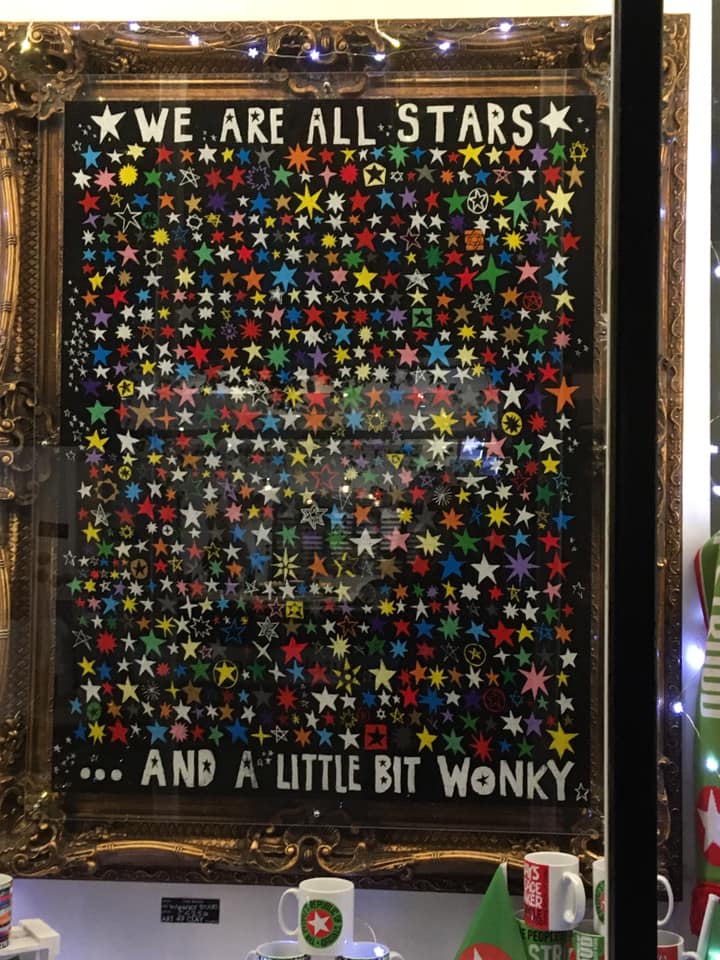This Week’s Bit of String: Saturday morning movies
One of our family traditions was letting Mom stay in bed on Saturday mornings, and we’d watch a movie. This sounds simple, but we had to choose from our videotapes, mostly random stuff recorded from basic cable, plus Disney feature cartoons. I’m the oldest of four kids, with five years between myself and my youngest sister. Certain parties objected to anything in black and white, and it couldn’t be too “mushy,” and one gets creeped out by films with talking animals.
Whenever I vetoed a movie, my siblings would roll their eyes and admit annoyed defeat. “Oh sure, because they get in trouble.”

It’s true, I was super sensitive about misunderstood characters in kids’ films, from Anne of Green Gables to Pete’s Dragon. Lady and the Tramp—I couldn’t bear that one (plus, it had talking animals so it was out anyway). It was the same with books: Curious George, for example.
I was petrified of getting in trouble for something I didn’t do, or even worse for something I did. I was the oldest child in a religious family, sensitive by nature, also traumatised by abuse. My dread of getting in trouble was so severe I couldn’t read or watch things where that occurred.
Causation vs Correlation
Lucky for me, in quite a few children’s films, things just happen. We ended up watching Peter Pan a lot (not the cartoon, but a slightly fuzzy tape of Mary Martin performing the lead in the Broadway musical). Plenty happens in that without the characters necessarily causing it.
It’s different as you get older. Characters must be autonomous, reflecting our quest for independence. This means everything that happens stems from protagonists’ decisions, overreaches, and failures.
Every crime-busting film from Miss Congeniality to Hannibal starts with the heroic detective disgracing themselves, and they must salvage their reputation. Every superhero film first establishes them as fallible; their powers are their only shot at redemption.

Recently while I finished retyping my entire novel with new edits, I streamed Paddington and Paddington 2 to get through the copying. When I mentioned it to my youngest sister, she was like, “Wait, how do you watch those? Paddington gets in trouble all the time!”
Yeah, I kind of got over that. I had to, or else I’d never read or watch anything. Nor would I be working on my current novel, about possibly the most famous Character Who Gets in Trouble of all time: Eve, the original sinner.
As I edit the book, I’ve been reading about story structure. John Yorke in Into the Woods presents the prototypical story structure as a process of awakening. Initially, the protagonist does not deal well with revelations and things continue going wrong. I just finished Nikesh Shukla’s Your Story Matters, in which he emphasises the importance of causality: the plot springs from a main character’s action or deliberate inaction when faced with new knowledge.
In other words, the main character is SUPPOSED to make it all happen. It’s all their fault. They have to fall a long way in order to teach us how to get back up. Every protagonist, in a sense, is the author’s sacrifice.
Agency vs… Real Life?
Now that I recognise how it works, it’s stressing me out and reviving my aversion to characters getting in trouble. I put a film on and wait for the character to completely blow it. I’m anxious while reading because I know the protagonist is destined to screw things up.

I do like a domino plot, though, where each detail causes another; the way John Irving or Margaret Atwood spin massive tales of intricate characters and everything’s interconnected by the end.
As I go through my Eve book yet again, I’m wondering how to cohere the trajectory, Eve’s actions (or inactions) and their consequences. This is a myth retelling, so not everything is strictly in Eve’s control. She has God, Lucifer, and most chaotically, other humans to deal with. Plus, part of my reason for writing this is to repudiate millennia of condemnation. Maybe bucking the traditional structure is acceptable, or am I a bad writer if Eve doesn’t trigger every consequence herself?
I noticed that in Dune 2, the protagonist never fails at any new trick he tries. The developments in the plot are not of his own making—different from a Marvel film. Indeed, Nikesh Shukla notes that the character-triggered consequence story structure is a Western tradition. It makes sense, I guess, that main characters from other, more faith-based cultures have less agency to affect the plot.
We Westerners are obsessed with individuality—the downside being we can be persuaded that any trouble is our fault. In real life, it’s not. Not every time. How tightly do you like your plots linked to your character’s actions? Does it ever cause you anxiety, knowing a character is destined to get in trouble?

